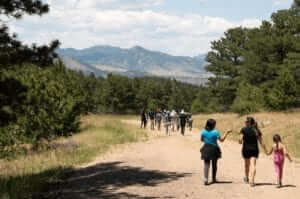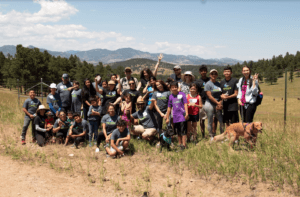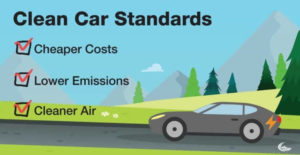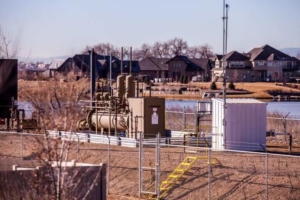Here at Conservation Colorado, we believe that to protect the environment we need strong laws and policies, championed by leaders who share our values and are willing to fight for them.
When it comes to protecting the environment and our Colorado way of life, one of the most important elected officials in Colorado is the attorney general. Here’s three reasons why this office matters, and why we’ve endorsed Phil Weiser for the election in November.
Fighting the Trump Administration
The attorney general (AG) is the lawyer for the people of Colorado, and, as such, the AG can act on behalf of Coloradans and our values. The AG can sue the federal government, join “friend of the court” briefs, and speak up for Colorado’s rights. See this document from the State Energy and Environmental Impact Center at New York University for more information as to how attorneys general across the nation have resisted Trump.
Unfortunately, Colorado’s current AG, Cynthia Coffman, has thrown her weight behind the Trump administration and taken actions that are tremendously out of step with Coloradans. Coffman has undermined several key environmental laws, like the Clean Power Plan and curbs on methane pollution.
We need an attorney general who will stand up and fight back to force the Trump administration to do its job of protecting our waterways, land, and air. Phil Weiser knows that Colorado has a right to pursue its own path, and he won’t let Trump and DC stand in the way of environmental progress.
Protecting Communities from Big Polluters
One of the key roles of the attorney general is to enforce the law against big polluters. The AG is essential to ensuring that we are balancing economic growth with protecting our environment. As one observer put it, “…in enforcement of environmental cases, [the attorney general] can pursue strong judgments that repay the people…instead of the polluters.”
Here in Colorado, Cynthia Coffman hasn’t protected our communities from big polluters. She has sided with climate change deniers and the fossil fuel industry to challenge the Obama administration’s clean energy agenda. She has undermined Governor John Hickenlooper’s leadership on restricting methane from oil and gas extraction. She has joined a federal lawsuit to prevent cities from taking big polluters to court over climate change.
Cynthia Coffman’s record on conservation is a stark reminder of how important it is to elect an attorney general who will stand up to protect our communities from corporations who are just looking to profit. Phil Weiser has promised to protect the health and safety of Coloradans and the environment by working collaboratively with the Colorado Oil and Gas Commission and local communities.
Making Progress For Colorado
Attorneys general are able to shape policies that impact our lands, air, water, and communities. As the AG’s office represents state agencies, including Colorado the Department of Natural Resources, the Colorado Department of Public Health and the Environment, and the Colorado Energy Office, he or she has significant influence over how administrative policy is created and implemented.
Rather than lead the way on environmental progress, Cynthia Coffman has stood in the way. As just one example, she opposes the notion that the Colorado Oil and Gas Conservation Commission should consider health and safety before permitting oil and gas wells.
We can count on Phil Weiser to work with our agencies to protect our environment. As attorney general, he will be a leader in addressing climate change, preventing unsafe or harmful oil and gas development, and protecting our public lands.
In November, with the end of Cynthia Coffman’s term and a candidate like Phil Weiser running, we have a chance to elect an attorney general who will truly represent our values – a welcome shift from the last four years. We’re proud to endorse Phil Weiser for attorney general, the lawyer for the people of Colorado. Weiser is facing George Brauchler, who is a favorite of special interests like the oil and gas industry. Surprisingly, he also just recently realized that water is a huge issue here in Colorado. While Brauchler is just beginning to learn about the environment while following the lead of polluting industries, Weiser will be a leader in addressing climate change, preventing unsafe oil and gas development, protecting our public lands and water, and prioritizing the health and safety of our communities.




 One bill — HB 1071 — was an attempt to clarify the mission of the Colorado Oil and Gas Conservation Commission (COGCC). It currently states that the COGCC is in charge of fostering and regulating oil and gas in Colorado. This bill would have changed this contradictory mission to prioritize health, safety, and the environment over industry profits.
One bill — HB 1071 — was an attempt to clarify the mission of the Colorado Oil and Gas Conservation Commission (COGCC). It currently states that the COGCC is in charge of fostering and regulating oil and gas in Colorado. This bill would have changed this contradictory mission to prioritize health, safety, and the environment over industry profits.

